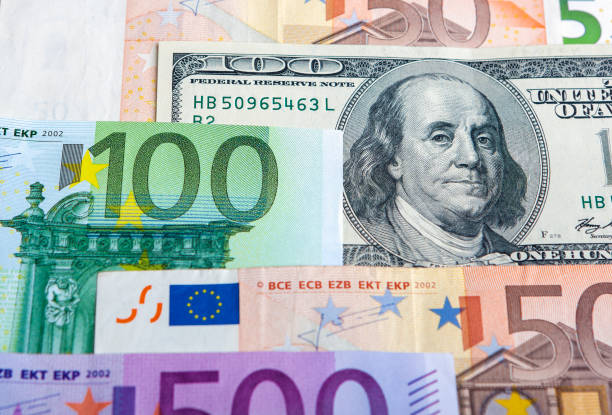EUR/USD stays below 1.0550 as traders exercise caution ahead of the US CPI
- Bitcoin Drops to $70,000. U.S. Government Refuses to Bail Out Market, End of Bull Market or Golden Pit?
- Gold rallies further beyond $5,050 amid flight to safety, dovish Fed expectations
- Bitcoin Bottom Debate: $70,000 or $50,000?
- A Crash After a Surge: Why Silver Lost 40% in a Week?
- Bitcoin Slips Below 75,000 Mark. Will Strategy Change Its Mind and Sell?
- Bitcoin Rout. Bridgewater Founder Dalio Publicly Backs Gold.

EUR/USD receives downward pressure due to market caution ahead of the US inflation report.
US headline and core inflation are estimated to rise to 2.7% and 3.3%, respectively, YoY in November.
The Euro faces challenges as the ECB is widely expected to implement a 25 basis point rate cut on Thursday.
EUR/USD remains subdued for the fourth consecutive day, trading around 1.0530 during the Asian session on Wednesday. However, the pair faced challenges as the US Dollar (USD) gained support from market caution, which could be attributed to the upcoming US Consumer Price Index (CPI) data release due on Wednesday.
The US Dollar Index (DXY), which measures the value of the US Dollar (USD) against its six major peers, appreciates as the US Treasury yields continue to rise amid market caution ahead of the Federal Reserve’s (Fed) policy decision. The DXY maintains its position around 106.40 with 2-year and 10-year yields on US Treasury coupons standing at 4.16% and 4.23%, respectively, at the time of writing.
The US CPI inflation is estimated to rise to 2.7% YoY in November from 2.6% in October. Meanwhile, the core CPI, excluding Food & Energy, is expected to increase 3.3% YoY. Any indications of stalled progress could significantly diminish the likelihood of a Federal Reserve’s (Fed) rate cut. However, markets are now pricing in nearly an 85.8% chance of Fed rate reductions by 25 basis points, according to the CME FedWatch Tool.
In the Eurozone, traders await the European Central Bank's (ECB) policy decision, scheduled for release on Thursday. The central bank is widely expected to implement a 25 basis point cut, lowering the Main Refinancing Operations Rate from 3.4% to 3.15% and the Deposit Facility Rate from 3.25% to 3.0%.
ECB FAQs
The European Central Bank (ECB) in Frankfurt, Germany, is the reserve bank for the Eurozone. The ECB sets interest rates and manages monetary policy for the region. The ECB primary mandate is to maintain price stability, which means keeping inflation at around 2%. Its primary tool for achieving this is by raising or lowering interest rates. Relatively high interest rates will usually result in a stronger Euro and vice versa. The ECB Governing Council makes monetary policy decisions at meetings held eight times a year. Decisions are made by heads of the Eurozone national banks and six permanent members, including the President of the ECB, Christine Lagarde.
In extreme situations, the European Central Bank can enact a policy tool called Quantitative Easing. QE is the process by which the ECB prints Euros and uses them to buy assets – usually government or corporate bonds – from banks and other financial institutions. QE usually results in a weaker Euro. QE is a last resort when simply lowering interest rates is unlikely to achieve the objective of price stability. The ECB used it during the Great Financial Crisis in 2009-11, in 2015 when inflation remained stubbornly low, as well as during the covid pandemic.
Quantitative tightening (QT) is the reverse of QE. It is undertaken after QE when an economic recovery is underway and inflation starts rising. Whilst in QE the European Central Bank (ECB) purchases government and corporate bonds from financial institutions to provide them with liquidity, in QT the ECB stops buying more bonds, and stops reinvesting the principal maturing on the bonds it already holds. It is usually positive (or bullish) for the Euro.
Read more
* The content presented above, whether from a third party or not, is considered as general advice only. This article should not be construed as containing investment advice, investment recommendations, an offer of or solicitation for any transactions in financial instruments.





